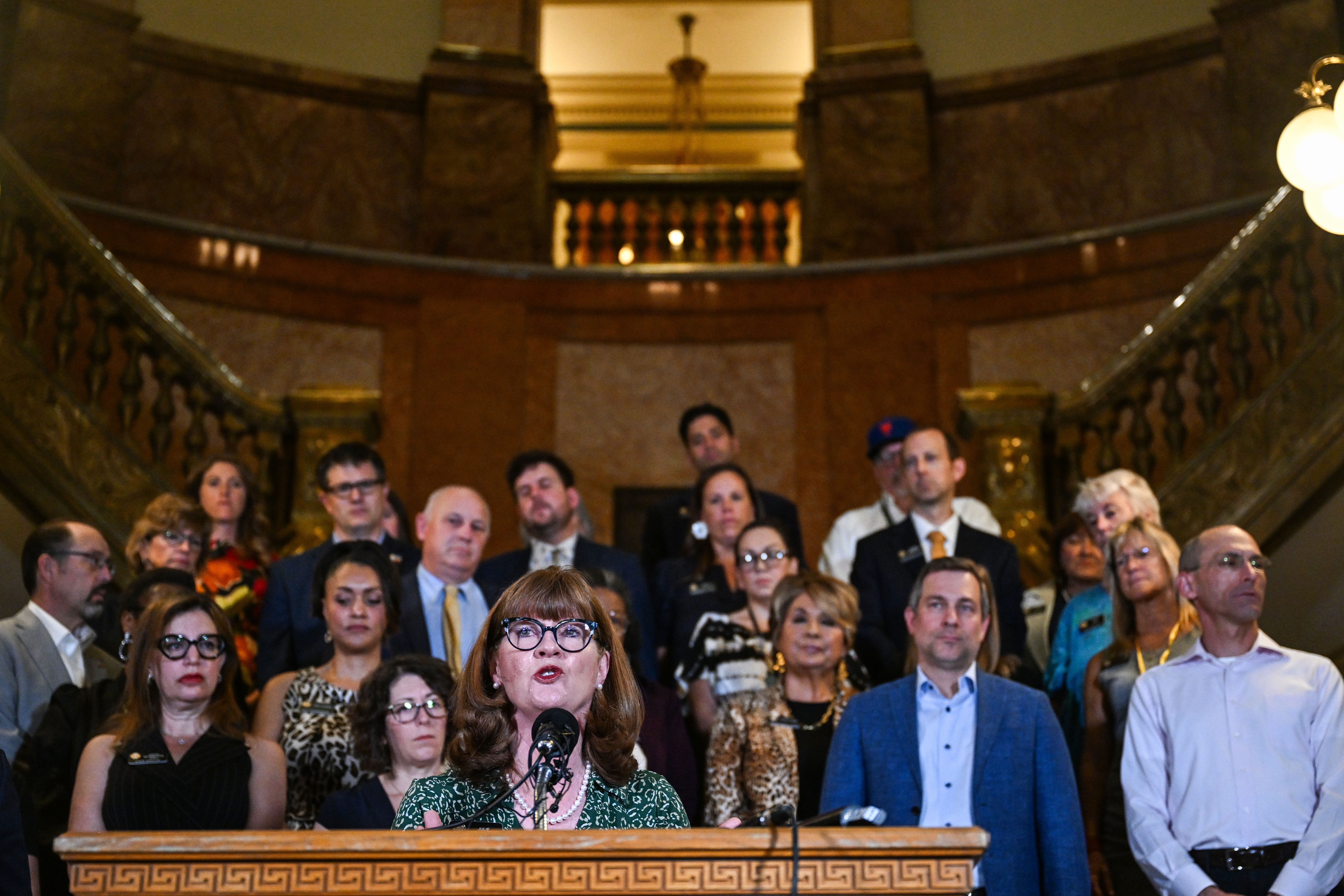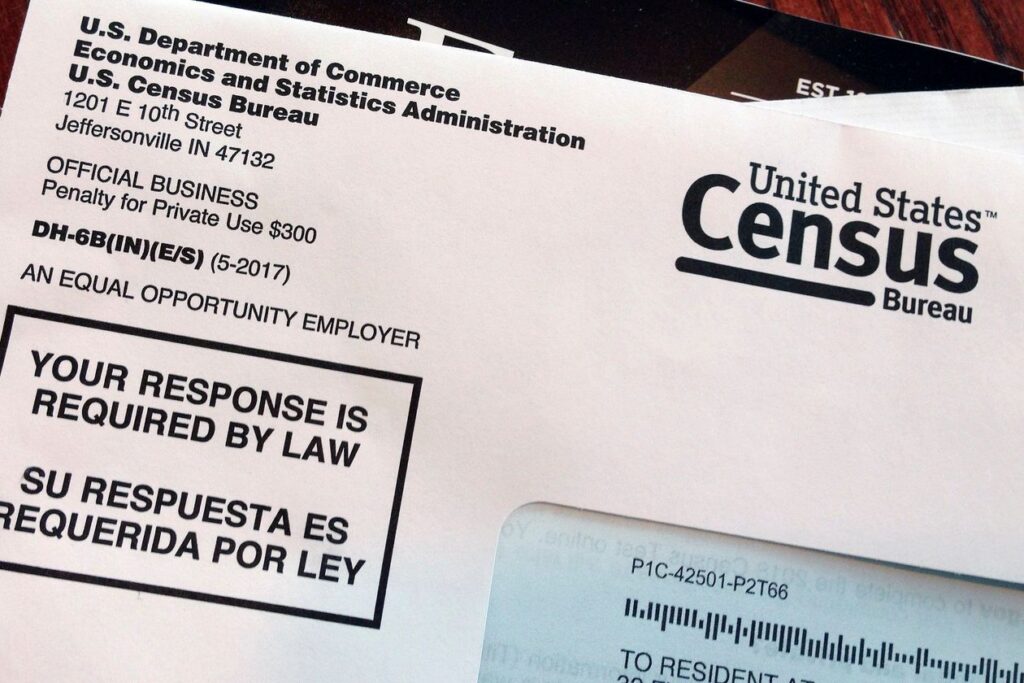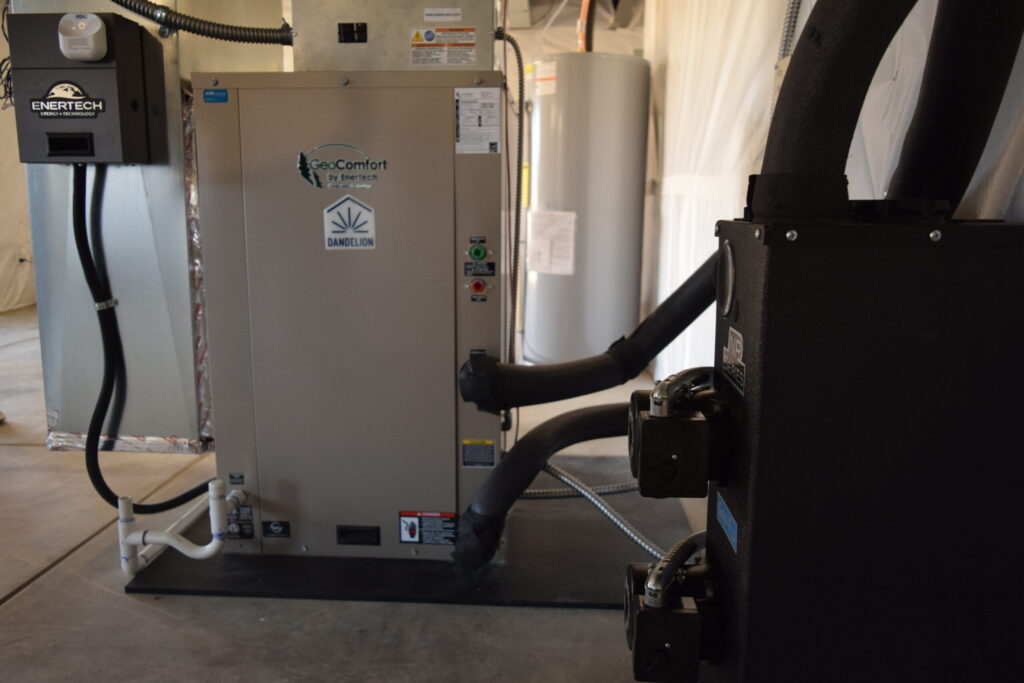Artificial intelligence bill gutted by Colorado Senate as deal possible collapses

Between Sunday and Monday, a hoped-for deal on the Colorado General Assembly’s main proposal on artificial intelligence regulation took a hit — and sources said it may not recover, as the issue around liability further shook the already shaky support for a potential agreement.
Recognizing the collapse of the possibility of a deal, Senate Majority Leader Sen. Robert Rodriguez, D-Denver, pushed an amendment in order to gut the bill and, instead, merely delay the 2024 regulation that is set to originally take effect early next year.
Rodriguez now seeks to delay that to June 30, 2026.
As of Sunday night, the Democrat said he thought he had the “outlines of a deal that would hold bad actors to account for their actions.”
“Business, consumer protection advocates, labor, and educators came together. But, Big Tech didn’t like the deal because they didn’t like the liability,” he said.
It took just a few more hours for that deal to collapse, he said, claiming the tech industry decided it prefers the 2024 law over the changes outlined in the special session bill.
“I never wanted to spend a special session negotiating over SB24-205,” he said. “For all of these reasons and more, it became impossible to iron out a path forward that works for everyone. That is why I am delaying implementation of SB24-205 until June 30, 2026.”
AI regulation has become the focal point of the special session, which Gov. Jared Polis convened to deal with an $800 million deficit. As it turned out, lawmakers are coalescing around the idea of using a combination of state reserves, changes to the corporate tax code to raise or preserve revenue and spending cuts to plug that $800 million hole.
Indeed, much of the tension at the state Capitol in the last few days had revolved around AI legislation. Senate Bill 4 — Rodriguez’s proposal — had passed its first Senate committee hearing on Thursday but didn’t move again until Sunday.
The Senate approved the amended version on Monday on a 32-2 vote. It’s next stop is the House.
The Colorado Chamber of Commerce — which was negotiating on behalf of small businesses, hospitals, large tech companies outside of the state and Colorado based-tech companies — pulled the plug on its efforts and told its members early Monday to contact senators to vote against the bill.
“Late last night, during the Special Session, we learned that advocates for another business group, labor union representatives and consumer advocates came together to advocate for new changes to SB 004 regarding AI,” the chamber’s notice said. “Those changes which will be in the form of a strike-below amendment to SB 004 and potentially another bill moving through the house will include a shift in liability on any business operating in Colorado as well as inhibit any new or existing AI development in Colorado.”
The chamber’s worries revolved around the bill’s liability language, arguing it would gut long-standing anti-discrimination protections and make developers jointly liable for discrimination caused by “deployers.”
“We have recommended that the issue of liability be part of a broader discussion through a mediated process” that would take place outside of Senate Bill 4 or any other legislation in the special session, the chamber said.
The chamber’s plea would apply to House Bill 8, which, for now, is simply a delay on the implementation of the 2024 AI law. That bill is awaiting a final vote in the House.
The Rodriguez bill would have required disclosures about AI decisions on education enrollment, employment, finances, essential government services, health care, housing, insurance or legal services. The 2024 law that lawmakers are trying to amend had placed a regulatory framework aimed at — supporters said — preventing discrimination by companies that use AI to make decisions in those areas. Business and others have argued that the bill would inhibit innovation, potentially compelling companies to skip Colorado or move elsewhere if they’re already here.
The law and the special session bill both apply to developers of AI systems, including tech companies — and by extension the venture capitalists that invest in them — and “deployers,” an umbrella term that includes small businesses, state and local government, schools, hospitals, banks, and colleges and universities.
On Sunday night, the state Senate gave Senate Bill 4 preliminary approval, which came with three more changes to the bill, including on the liability issue.
Under one change, deployers must notify an individual affected by a decision with a notice that the deployer is using AI to make that decision. Once that decision is made, the deployer, within 90 days, must provide the individual with a list of the types, categories and sources of “personal characteristics associated with the individual” that helped inform the AI decision.
The personal characteristics are a list of 20 factors, including personal or “sensitive data,” genetic information, biometric identifiers, and the individual’s economic, situation, health, personal preferences, affiliations, interests, reliability, behavior, location or movements, as well as “inferences associated with a group, band, class or tier of individuals to which the individual belongs.”
The Colorado Independent AI Coalition said that goes far beyond just artificial intelligence and liability issues.
SB 4’s latest fiscal note also addressed the definition issue, saying that “algorithmic decision systems” is “broader than the current law standard created by SB 24-205, which could expand liability to additional developers and deployers of these systems.”
The Senate tweaked the “personal characteristics” portion on Sunday, although it still included all the information listed above. The change is that personal characteristics no longer included employment references provided by the individual. The timeline for a deployer to inform the individual on the “personal characteristics” used was also changed to 90 days.
A fact sheet from the coalition of labor unions and consumer groups backing SB 4 said a deal could include changes to the definition of algorithmic systems to state that it applies only to technology that “materially impacts life-altering decisions.”
The deal offered by the coalition noted that, under the 2024 law, deployers would be liable to discrimination. The deal would require developers to share in the liability when it comes from their technology, which the coalition said would protect hospitals, schools and small businesses.
What the deal doesn’t mention is the bill’s cost or whether those changes would result in a lower cost.
The fiscal note, which outlines how much state government will spend to implement the bill, actually went up over the weekend after an amendment was placed to allow public entities to make those disclosures through an open records request. It went down again with an amendment that provided an exception for the Judicial Department in its use of AI in probation decisions.
The latest fiscal note showed a cost of $2.5 million, starting Feb. 1, 2026, and $5.5 million per year thereafter. That will require adding 39.8 new full-time employees.
The Office of Information Technology, which manages IT systems for many state agencies, will need $300,000 to conduct an external audit of its information management systems, the fiscal note said. Another $230,000 would be spent on external vendors “to implement updates to their disclosure notice and data management systems, and provide training to executive branch agencies.”
The second AI bill, House Bill 8, is still awaiting final action from the House.













